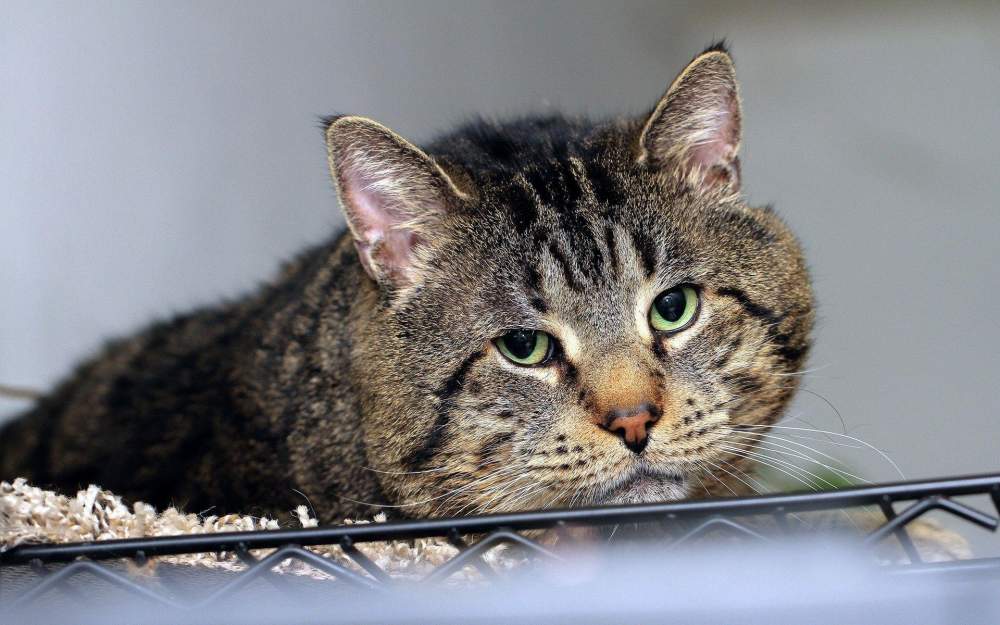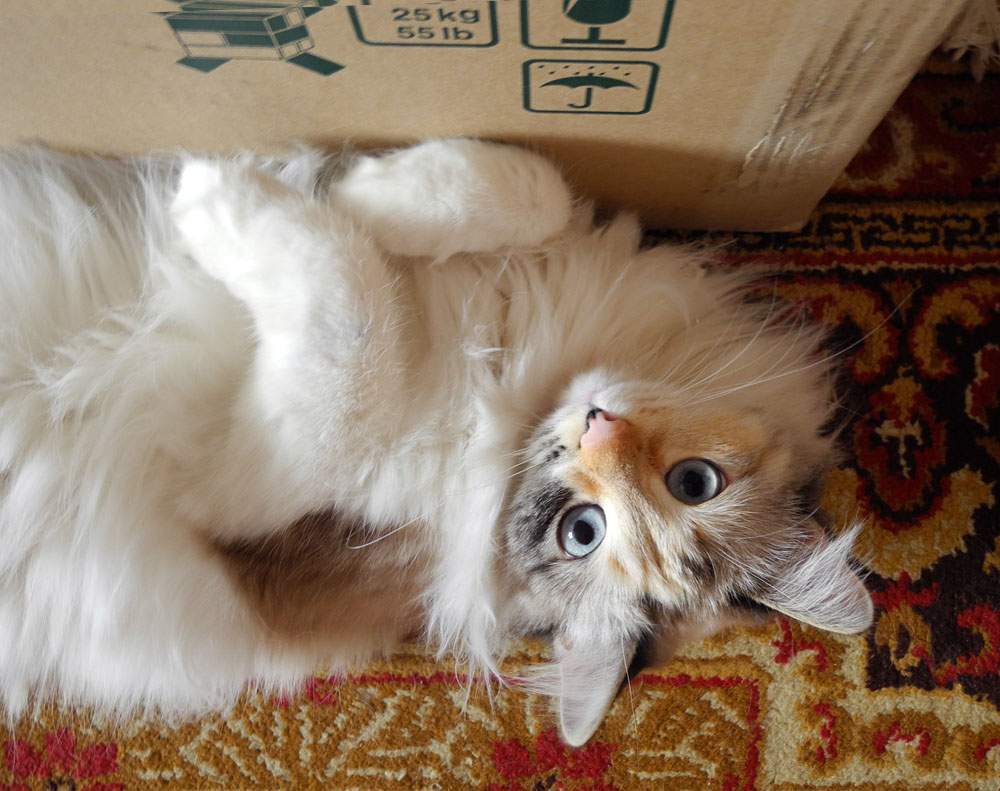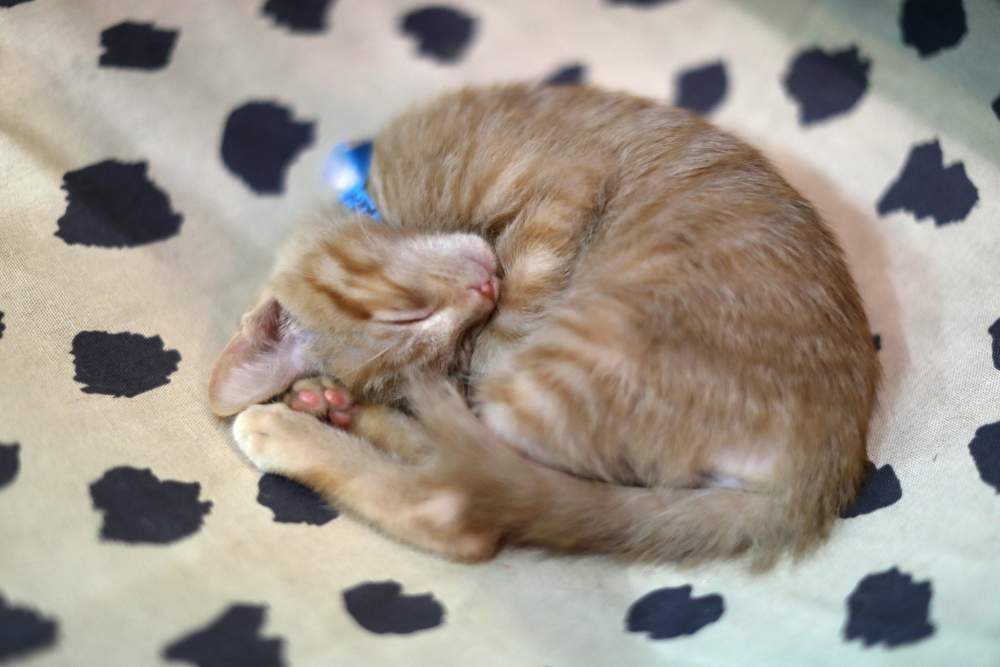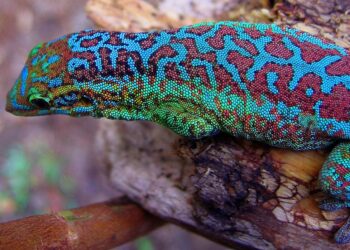Depression in cats is difficult to identify because it takes on many forms and symptoms common to other disorders. It is also difficult to tell the difference between a temporary depression or even a seasonal depression, almost inevitable in the event of major (but often inevitable) changes in the cat’s life, and a depression that sets in for a long time. However, it is essential to identify depression as early as possible since the more time passes, the more difficult it is to get rid of it, especially since drug treatments are not yet very developed.
There are many symptoms that can alert you:
The cat is amorphous:
Suddenly your cat no longer seems interested in anything and suffers from constant apathy. Even though he liked to run or play, he now remains slumped on the sofa or on his cushion without moving. You might be tempted to associate this inactivity with laziness, but an active cat losing energy should always alert you!
The cat is insomniac:
Inactivity can be normal, especially in old cats who no longer have the energy of yesteryear. However, this inactivity is then accompanied by regular sleep. The depressed cat does nothing but does not sleep. He is therefore all the more exhausted, which makes his condition even worse.
The cat no longer has an appetite:
Your cat, usually so greedy, no longer seems interested in his bowl. The depressed cat often feeds less, or even more at all. If your cat is losing weight or appears to be malnourished, do not hesitate to consult a veterinarian without further delay. If depression is a mood disorder, it can have serious consequences for your pet’s metabolism if your pet stops feeding.
The cat defecates anywhere:
Once proud and dignified, your cat lets himself go and defecates anywhere. It is not about being noticed or attracting attention, but a denial of one’s survival instinct. Indeed, when the cat defecates in its litter box, it then buries its droppings. This action is by no means a sign of flirtatiousness, it just makes sure that predators won’t find it because of its smell. By defecating everywhere, he gives up all survival reflexes.
Reading suggestions; 200+ Unique Female Cat Names for Your Cute Companion
The hair of the cat is oily and smelly:
The cat is known for its legendary cleanliness. He spends a lot of time a day grooming. However, if he goes through a state of depression or depression, he no longer has the desire to wash or “take care of himself”. The coat is therefore oily and badly smelling, certain studies show moreover that the psychological state of the animal can accentuate this concern and that the bad odors do not necessarily diminish even if you wash it. Poor maintenance also causes skin problems like irritation or eczema.
The cat has behavioral problems:
The cat suffering from depression often has problematic behavior, which does not fit well with the life of the house. Aggressive, even dangerous, he seems to repel anyone who wishes to approach him, including his master. This reaction often creates a climate of mistrust which reinforces the distance from other members of the house, reinforcing the cat’s isolation and depression.
What Are the Causes of Cat Depression?
Warning! Your cat’s depression should be diagnosed by a professional. The symptoms mentioned above correspond to many other diseases, some of which are purely physiological and must be treated urgently. In addition, a less energetic cat or one that eats less during a certain period of time is not necessarily depressed and may simply suffer from a virus, or even a temporary depression or seasonal depression of the cat which will pass over time.
But whatever the reasons for these symptoms, it is always best to get them under control.
Once the diagnosis is established, it is important to determine the cause of the cat’s depression, because by finding the cause you can remedy it or at least make the changes necessary to relieve your pet.
Reading suggestions; My Cat No Longer Eats. How My Cat Eat Better?
The cat was weaned too young
The importance of the weaning period in kittens is often underestimated. A small cat should stay with its mother for at least the first 8 weeks of life. This period will teach him sociability, but also self-confidence. In contact with its mother, the kitten learns to understand the world in a climate of security and confidence.
If weaning is done too early or too abruptly, the kitten will not gain this necessary security and confidence. The basics not having been laid, should considerably affect his psychological well-being.
The cat feels abandoned
The cat can feel abandoned if due to neglect or death, the cat is forced to change families or if it simply feels ignored by its adopted family. The cat needs to be loved and he needs to evolve in an environment of warm trust.
The chat environment is changed
The cat is very sensitive and needs to follow a precise routine. You should never change your habits under penalty of causing him a state of stress that could turn into depression. Baby, move, new companion when a change of scale occurs in the cat’s life, try as much as possible to maintain his bearings and not to change his habits. If you notice that the blues are setting in, consult before it’s too late.
The cat suffers from the loss of a loved one
Cats easily become attached to humans and other pets. Following the death of a living being who shared his daily life for a long time, the cat can be permanently downed and fall into depression.
The cat is bored
Don’t be fooled by his independent demeanor, your cat needs a distraction and is very sensitive to boredom, especially if he lives in an apartment. It is therefore important to arrange your home so that your companion can exercise and have fun at leisure. It is also essential that you give him time to play with him, stroke him, and show him your affection.
How to prevent and treat depression in cats?
Once the diagnosis is made, it is unfortunately often too late, because the cat generally does not want to live anymore and risks allowing itself to die. The veterinarian can prescribe antidepressants, but there is currently no treatment that can effectively and completely cure this disease and if the drugs alleviate the symptoms, their side effects are very strong.
It is up to the master to get his cat out of his lethargic state, showing him his affection and reaffirming his presence on all occasions. If he refuses to feed, you can also hide some food to stimulate his instincts. In short, bet everything on positive reinforcement and get help from a feline behaviorist who can give you ideas for well-being. The best way to treat depression in cats is to avoid it.
To do this, we must first ask ourselves before adopting a kitten: do we have the necessary space, the possibility of arranging this space to make it a pleasant place to live for his cat, and the availability to take care of his cat during all his years of life?
It is also essential to make sure, as much as possible, that you will be able to ensure a stable existence for your animal. For example, if you have to travel, or change country often, the presence of a cat who likes to have his routine is not recommended. If you feel ready to welcome a kitten, resist the urge to go for a whole baby.
The cat must be weaned before arriving at your home and it is better to leave it with its mother for a few weeks or even a few months so that it can acquire all the social rules that will make it a confident and balanced animal. Once home, your pet should be able to take care of and feel appreciated. Arrange your interior so that it is playful for your cat and that it does not get boring, boredom being a cause of depression in cats.
If the material and playful aspects are very important, the cat needs affection and attention above all. Caresses, hugs, recognition, build a real relationship with your animal so that he receives the affection he needs on a daily basis to live a happy and balanced life.
Conclusion:
Depression in cats, although “psychological” is one of the most serious illnesses since if it is not identified and treated in time, it can often prove fatal. It is therefore important to prevent it from the start of the cat’s life in order to guarantee it a happy and fulfilling existence that will keep it away from this dangerous mood disorder.













